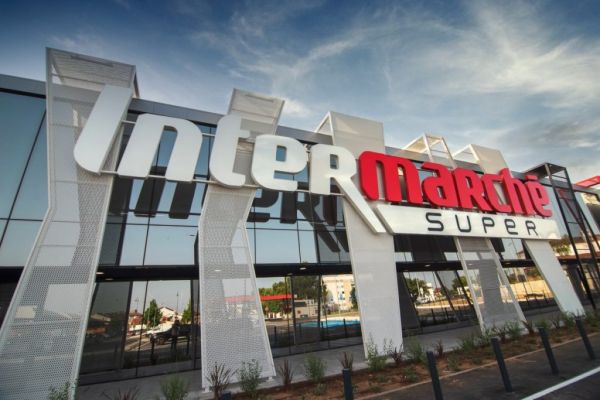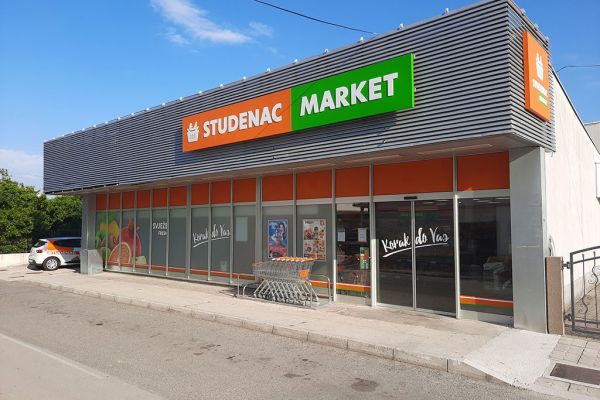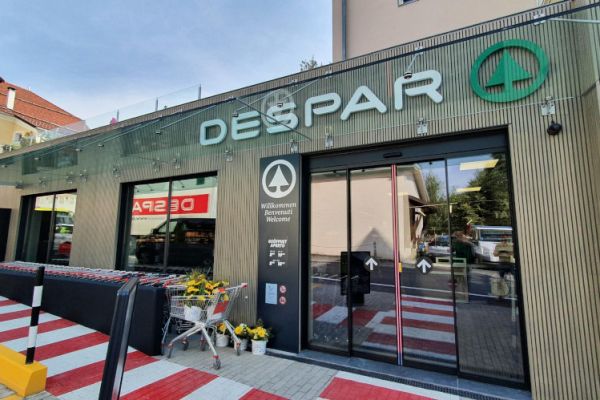Over the last 18 months, Oliver Butterworth, international retail analyst at IGD has observed major grocery retailers in Brazil promoting healthy, fresh and organic products due to increasing consumer demand for healthier and natural products.
Brazil has several small, independent grocery retailers – such as Premium St. Marche and Natural da Terra – that have become a reference for fresh food in the neighbourhoods they serve. However, leading retailers like Carrefour and GPA are also looking to meet demand in these areas.
From IGD’s recent visit to the country, five themes stood out that companies globally can take inspiration from.
1. Fresh Specialisation
In Rio de Janeiro, Hortifruti stands out due to its extensive range of quality fresh products. Hortifruti sells less ambient grocery products than its competitors, with around 80% of sales coming from fresh and bakery. Tastings are available for customers to sample products, while ‘Salata Express’ salad bars and a wide selection of freshly made juices help to drive footfall.
Meanwhile, in the cash and carry channel, which is dominated by GPA and Carrefour, local retailer Giga stays competitive through the quality of its fresh fruit, vegetables and eggs. The retailer offers a wide range of high-quality produce at comparatively low prices and allows customers to bulk-buy some products to make its offer cheaper still.
2. Differentiation Through Premiumisation
St. Marche and Natural da Terra in São Paulo pride themselves on the quality of their fresh produce, and offer top quality goods, premium counters, and an ambient shopping environment to entice shoppers away from big multinationals.
Both retailers showcase their fresh and organic products at the front of store. The quality is demonstrated through various tasting stations and most produce is loose, allowing customers to feel for ripeness.
St. Marche positions its ambient health food category adjacent to fresh. Natural da Terra differentiates itself by offering pre-prepared, smaller-sized portions of vegetables, which appeal to smaller families and individuals and helps to reduce waste.
3. Zoning Health-Food Categories
Carrefour and GPA have been adding health-food zones into stores, typically adjacent or close to their fresh categories. This makes shopping easier for those wanting to complete a healthy shop or for customers with specific dietary requirements.
In GPA’s Pão de Açúcar ‘G7’ stores, fresh produce is relocated to the front of the store with the health food zone adjacent. This layout encourages customers to walk through the zone as part of their journey through the store: raising the visibility of these categories and enticing shoppers into trying new products or making healthier choices.
4. Providing Sustainable Solutions
Most markets could learn from Brazil-based retailers’ minimal use of packaging in fresh. Pão de Açúcar merchandises fresh products alongside re-usable containers on the same fixture and, since 2016, it has also been running the Reutilizar #praserfeliz (‘re-use to be happy’) initiative, which encourages customers to bulk-buy nuts, seeds and cereals in re-usable jars.
In July 2019, Carrefour Brazil announced plans to replace all current packaging for its organic produce with biodegradable alternatives. This move sets a precedent that other retailers are likely to follow, as they look towards a more sustainable future. Suppliers should therefore consider phasing out materials like styrofoam, replacing these with cardboard or other biodegradable materials.
5. Strengthening Private Label Ranges
Private label’s share is relatively low in Brazil as its quality has historically been perceived as poor, although leading retailers are now investing heavily in this area. GPA and Carrefour are developing and incorporating healthy and organic private label products: aiming for private label to account for at least 20% of sales by 2022.
GPA’s organic-focused private label ‘Taeq’ is also growing rapidly, and is being merchandised alongside known brands in their health-food zones. Taeq helps to demonstrate how healthier products do not need to be more expensive.
This trend extends to fresh private labels too. In 2018 Carrefour launched the Sabor & Qualidade (Taste & Quality) private label, consisting of high-quality, sustainably-sourced fresh products. This is in line with its Carrefour 2022 transformation plan, which aims to ‘expand the supply of healthy and organic food at a fair price'.
Final Word
There is growing consumer demand for health-oriented products in Brazil, and retailers are responding quickly. Other markets could take inspiration from their forward-thinking approach to having a fresh-focused store layout and bringing together fresh produce and ambient health-foods.
This benefits customers but has the potential to drive basket spend too, with demand for healthier food presenting a big growth opportunity for retailers everywhere.
Download a free copy of the IGD Retail Analysis global trends outlook at www.igd.com/trends19. All pictures courtesy IGD Retail Analysis.
© 2019 European Supermarket Magazine – your source for the latest retail news. Article by Stephen Wynne-Jones. Click subscribe to sign up to ESM: The European Supermarket Magazine.
















